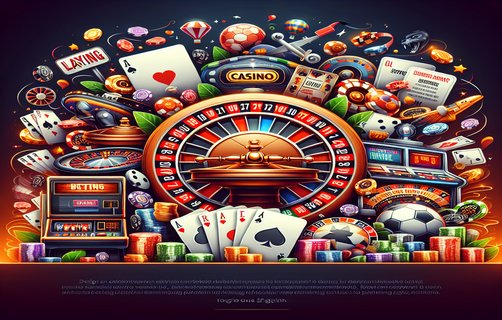The Art of Luck and Strategy: Navigating the Casino Landscape
In the realm of gambling, where chance meets skill, a variety of games present unique opportunities and challenges. Among these, games like Blackjack, the gin rummy, and other card games emphasize both strategic play and the psychological aspect of gaming. For practitioners, understanding the intricacies of these games can translate into better decision-making, akin to crafting an investment strategy in financial markets.

Blackjack, one of the most popular card games in casinos, requires a deep understanding of probability, strategy, and probability management. The objective is simple: players strive to achieve a hand value closer to 21 than the dealer's hand without exceeding it. The key difference between Blackjack and other casino games lies in the influence of skill on outcomes. Players can improve their odds through various tactics, such as card counting and employing basic strategy charts. This approach mirrors an investment strategy where market factors are analyzed to enhance returns. When developing your tactics, consider employing short-term tactics like adjusting your betting patterns or taking calculated risks depending on the dealer's up card.

However, as exhilarating as these games can be, the risks are ever-present. Gambling-related arrests highlight the darker side of indulging in the casino milieu, portraying individuals who may become overwhelmed by their betting behavior. Practitioners must recognize the importance of setting personal limits and adhering to them, much like an investor having a firm exit strategy to prevent losses surpassing acceptable thresholds.
The concept of dead money refers to chips in the pot that may be lost without a strategic return. A savvy player must identify when to abandon hands or bluff, akin to recognizing bad investments to cut losses. Additionally, the cool-off period serves as a crucial strategy device; evaluations must be carried out post-gaming sessions to manage emotional investments and recognize patterns that could mislead decision-making in future play.
Building effective poker ranges involves a detailed understanding of potential hands within the game. It allows players to navigate through their choices and allocate their resources sensibly, similar to asset diversification strategies in investing. In decisions related to dealer choice, practitioners must weigh the advantages and disadvantages of dealer dynamics, crafting strategies tuned to exploit such factors consistently.
In conclusion, the casino landscape, rich with opportunity and peril, demands a well-rounded approach that embraces both the thrill of chance and the rigor of strategy. Practitioners should draw insights from investment methodologies, applying them to their gaming endeavors to enhance their overall success and enjoyment in the world of gin games and beyond.
